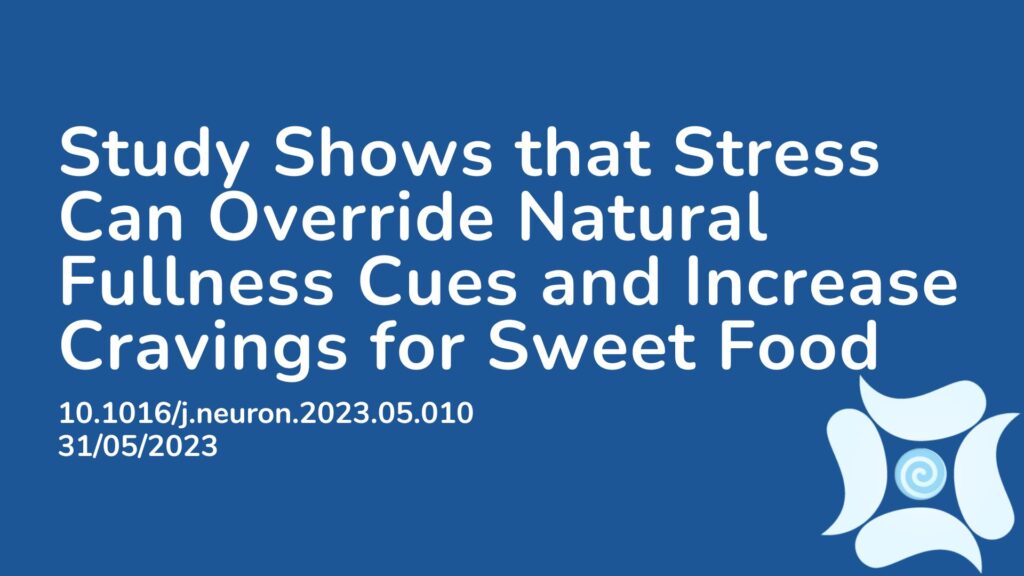Summary:
A research team from the Garvan Institute of Medical Research in Sydney found that stress can override the body’s natural response to feeling full, and increase cravings for highly palatable food such as sweets. This is due to stress increasing the activity of hormones that control reward signals. The researchers looked at the brains of mouse models and analysed how different diets impacted different areas of the brain. They discovered that an area of the brain called the lateral habenula was inactive during times of stress. The lateral habenula is usually responsible for switching off the brain’s reward signals so that we know to stop eating. This means that during time of stress, the reward signals stay active and an individual may not be able to respond to normal satiety cues such as fullness.
Abstract:
Chronic stress fuels the consumption of palatable food and can enhance obesity development. While stress- and feeding-controlling pathways have been identified, how stress-induced feeding is orchestrated remains unknown. Here, we identify lateral habenula (LHb) Npy1r-expressing neurons as the critical node for promoting hedonic feeding under stress, since lack of Npy1r in these neurons alleviates the obesifying effects caused by combined stress and high fat feeding (HFDS) in mice. Mechanistically, this is due to a circuit originating from central amygdala NPY neurons, with the upregulation of NPY induced by HFDS initiating a dual inhibitory effect via Npy1r signaling onto LHb and lateral hypothalamus neurons, thereby reducing the homeostatic satiety effect through action on the downstream ventral tegmental area. Together, these results identify LHb-Npy1r neurons as a critical node to adapt the response to chronic stress by driving palatable food intake in an attempt to overcome the negative valence of stress.
Article Publication Date: 31/05/2023
DOI: 10.1016/j.neuron.2023.05.010



